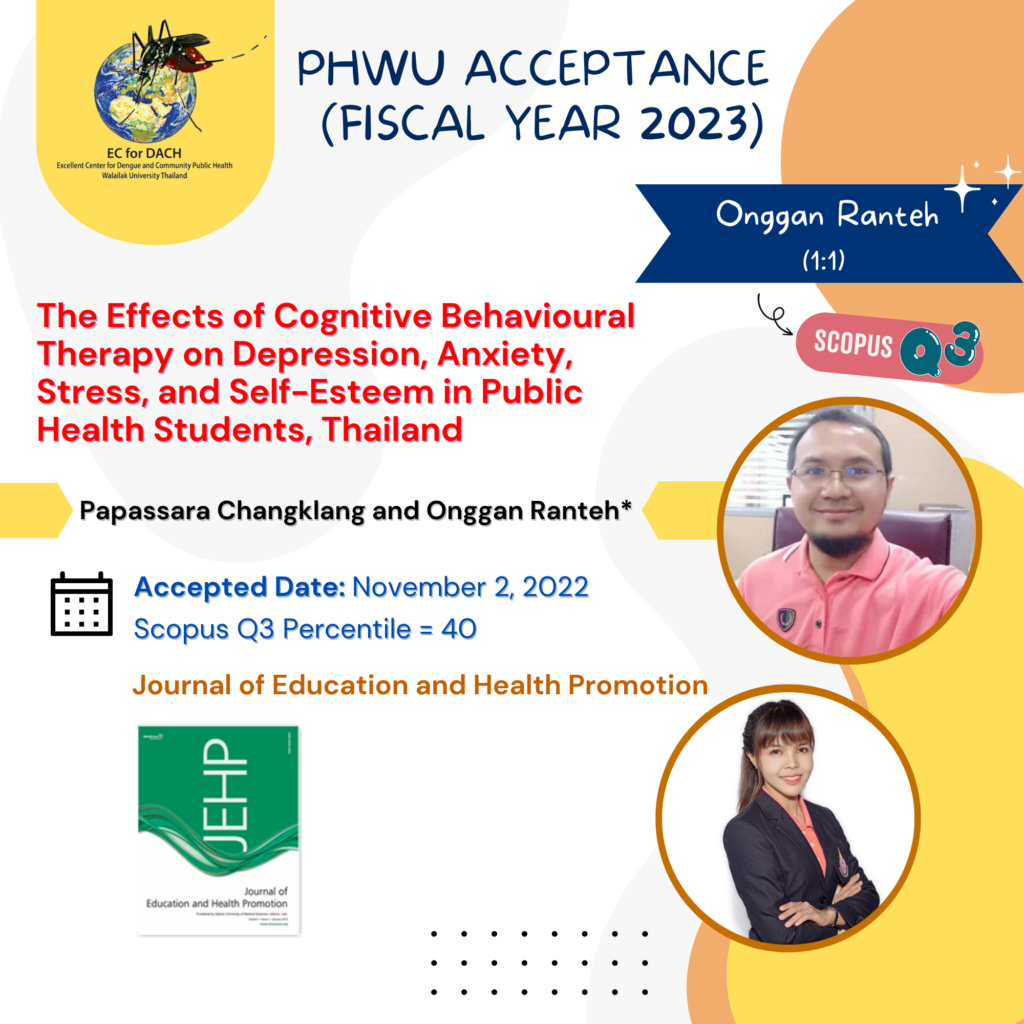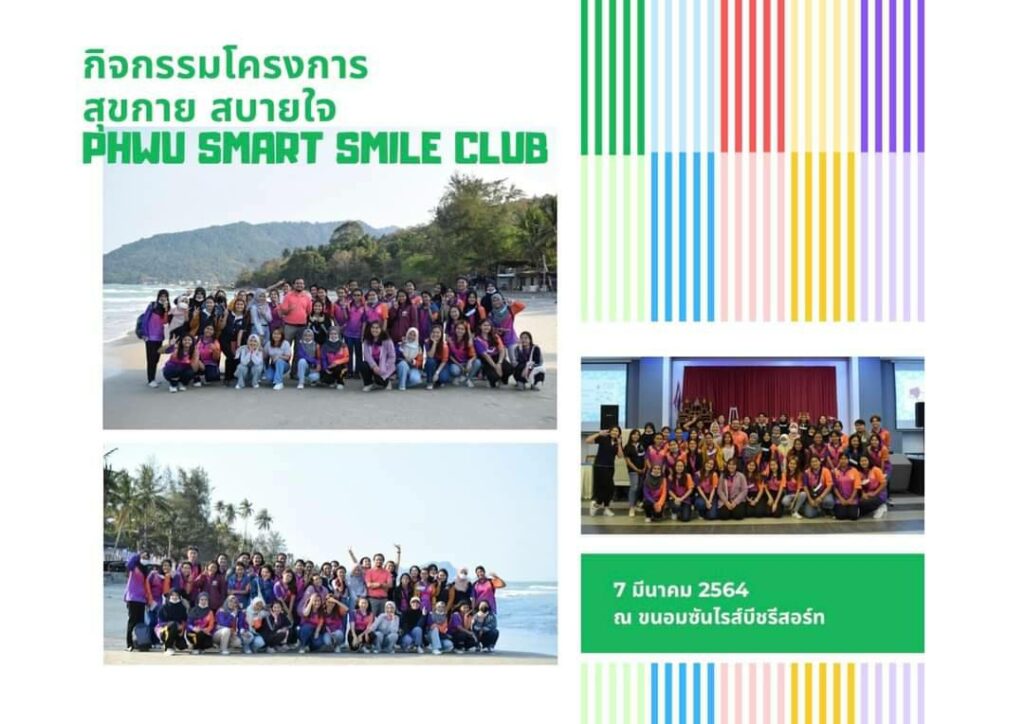
The Effects of Cognitive Behavioural Therapy on Depression, Anxiety, Stress, and Self-Esteem in Public Health Students, Thailand
Papassara Changklang and Onggan Ranteh*
Abstract:
INTRODUCTION: This study aimed to investigate the effect of group cognitive behavioural therapy on depression, anxiety, stress, and self-esteem on public health students at the University in Southern Thailand.
MATERIALS AND METHOD: The study employed a quasi-experimental, one-group, and pre-test -post-test design. Purposive sampling was employed to include 31 students, selected from those with screening indicating mild to moderate depression. While 28 of them (90.3%) were female, three (9.7%) were male. Their age range was 18-21 years, averaging 19.5 years. The instruments were the Thai translation of the Depression, Anxiety, and Stress Scale (DASS-21) and the Thai version of Rosenberg Self-Esteem Scale (RSES), which were evaluated and produced high validity and reliability results. Data was collected through online questionnaires. A pre-test and a post-test were utilized to measure the participants’ depression, anxiety, stress, and self-esteem before and after participating in a group cognitive behavioural therapy (CBT), comprising eight sessions in two months.
RESULTS: Revealed significant improvements in depression (p=.001), anxiety (p=.040), and stress (p=.002), while self-esteem (p=.465, >.05) was not significant.
CONCLUSION: Group CBT sessions were effective at relieving depression, anxiety, and stress, but not the self-esteem. Accordingly, further studies might consider these results and expand on this topic by broadening the population to different majors.
Keywords: Cognitive behavioural therapy, depression, anxiety, stress, self-esteem, public health students
Address for Correspondence:Onggan Ranteh, Excellent Centre of Dengue and Community Public Health, School of Public Health, Walailak University, Nakhon Si Thammarat 80160, Thailand; hasbeeyallah@gmail.com



